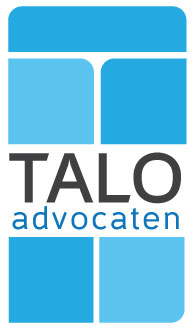Gepubliceerd op 28/03/2025
In a significant ruling on 15 March 2024, the President of the Brussels Enterprise Court made an important decision in a dispute resolution case. This recent case illustrates how dispute resolution under the Companies and Associations Code (WVV) can be an effective tool for shareholders who find themselves in an untenable situation.
Protection of shareholder rights
The case concerned a minority shareholder who was systematically excluded from decision-making and information within a BV in the IT sector. The court ruled that there were sufficient grounds for a forced exit, which not only freed the shareholder from a stifling corporate relationship, but also secured a fair return on the shares.
What is dispute resolution?
Dispute resolution is a procedure that shareholders can use when insurmountable problems arise within a company. The WVV provides for two main variants: exit at the expense of the shareholders (Article 2:60-2:69 WVV) and exit at the expense of the company assets (Articles 5:154-5:156 WVV for the BV and 6:120-6:124 WVV for the CV).
Justified reasons for resignation under section 2:68 WVV
According to Section 2:68 WVV, any shareholder may, for valid reasons, claim in court that his shares be acquired by the shareholders to whom those valid reasons relate.
In the recent ruling, the court confirmed that a “well-founded reason” can be defined as “a deep and lasting disagreement that effectively renders any further cooperation between partners permanently impossible and makes it reasonably impossible for a partner to remain a partner in the company in question any longer.”
The court ruled that there were clear grounds in this case as the plaintiff shareholder:
- Systematically excluded from decision-making
- Failed to access key financial and accounting information
- His comments at shareholder meetings were deliberately misrepresented in the minutes
- His right of control as a shareholder was repeatedly violated
Shareholder’s interests at heart
A crucial element in this ruling was the confirmation that the personal interest of the claimant shareholder is central to the assessment of good cause. The court confirmed that the corporate interest should only be tested exceptionally and marginally.
This principle, now firmly established in case law, provides important protection for minority shareholders who are often told to put “the corporate interest” ahead of their personal interests.
Jurisdiction of courts under the WVV
The president of the company court has the power, as in summary proceedings, to rule on claims for exit (Article 2:62 §1 WVV). In this case, the court exercised this power by not only allowing the exit, but also appointing an expert to determine the value of the shares.
The court ruled that the valuation had to be based on the actual economic value of the company, and not on the accounting value proposed by the majority shareholder. This ultimately resulted in a consideration significantly higher than what was initially offered.
Opportunities under the WVV
This case illustrates some important opportunities offered by the WVV:
The possibility of settling all “around it” disputes in one procedure (Article 2:62 §3 WVV), including open current accounts and disputes over intellectual property rights.
The clear delineation of the president’s jurisdiction, which allows attempts to delay proceedings by filing counterclaims to be warded off.
The possibility of obtaining an interim arrangement for the management of the company during the proceedings, which may prevent further damage to the interests of the claimant shareholder.
Lessons for shareholders in conflict
This case offers important lessons for shareholders in conflict situations:
- Carefully document all incidents indicating violation of shareholder rights
- Respond timely and formally to company irregularities
- Seek specialised legal advice before the situation escalates
- Consider exit when cooperation has become definitively impossible
Conclusion: effective protection for shareholders
This recent ruling confirms that the WVV provides effective protection for shareholders in a deadlock, and that a well-prepared exit procedure can be a powerful tool.
For shareholders considering claiming an exit, professional advice is indispensable. At Talo Lawyers, we have extensive experience in dispute resolution and can assist you to maximise the chances of success of your claim and obtain the most favourable financial settlement. This recent case, in which we won a significant victory, illustrates our expertise in this area.
Tim De Clercq
Advocaat / oprichter
info@taloadvocaten.be+32 3 612 57 60
+32 3 612 57 69
Mter. De Clercq
More artikels-en


